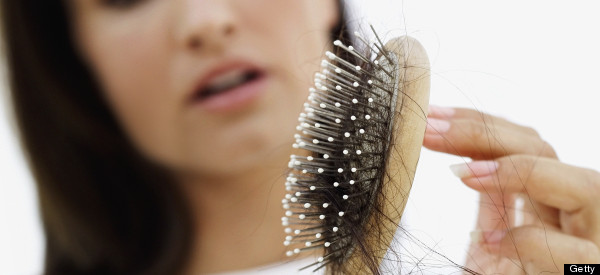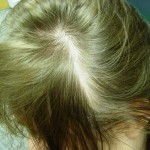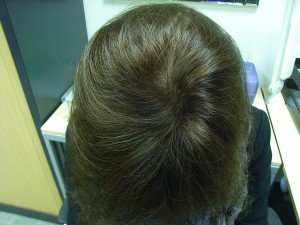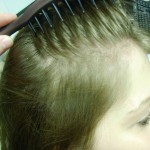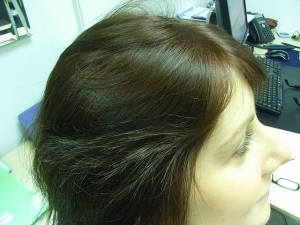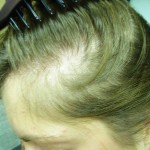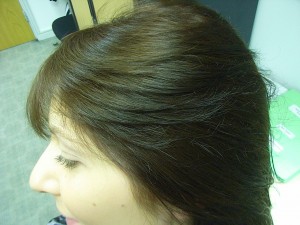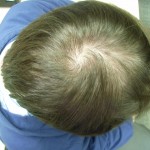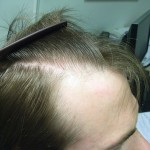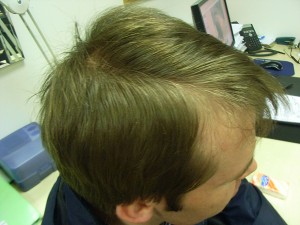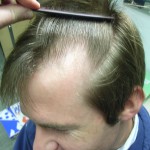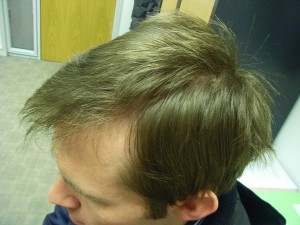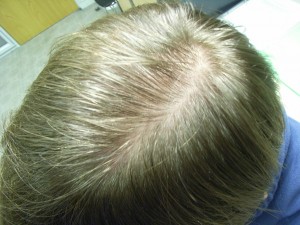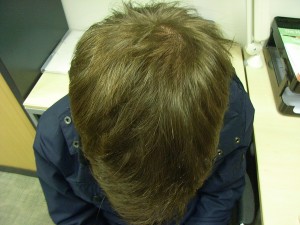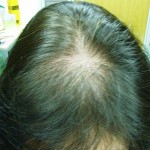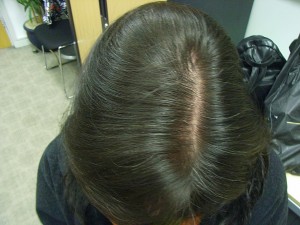Stress Hair Loss – Are You At Risk?
07.06.2013 in UncategorizedWhen Nadine Dorries spoke out about her alopecia on Daybreak earlier this week, she referred to the condition as a “confidence stealer”.
Although we don’t quite agree that it’s vastly different for men than it is for women – she said on the show that -“When men go bald and when they lose their hair, what they tend to do is have a mid-life crisis and go out and have an affair, but what women tend to do is to actually go into their houses and lock the door” – she did shine a spotlight on an issue that is often embarrassing and difficult to talk about.
Dorries isn’t completely sure what has caused her alopecia, and there are several types. Androgenic alopecia is the standard male and female pattern baldness, while traction alopecia is caused by pressure to the hair, so if the hair is tied up too tightly or held tightly in a wrapper of cloth.
There are some types of alopecia however, which are linked to stress, which is anagen effluvium, where it occurs three months after a stressful event, like a bereavement or emotional stress, and alopecia areata, when the hair falls out quite quickly and in a circular pattern.
Gary Heron, Head of Practice and former alopecia sufferer at The Westminster Practice spoke to the HuffPost UK Lifestyle about how stress can affect your hair. He said “It fluctuates from recession to recession, we have seen more alopecia areata across the board, which are stresses from recession in 2007. We’re seeing more aggressive cases too, where there’s around 20-30% hair loss, which is a lot. If you’re stressed out, your auto immune system runs completely flat, the stress builds up, and if you’re the kind of person who implodes rather than explodes, you’re more likely to get it”.
He adds “It’s also immune system related and genetic related, so in groups of a family, one might have asthma, one might have eczema and another alopecia. If your boats are lined up the wrong way you might be prone to it”.
- Baldness linked to heart disease in men
- Chinese ‘hair addict’ trend is very worrying
According to Gary, alopecia barbae – which affects a man’s beard – is definitely on the increase simply because more men are growing beards these days. It might sound obvious, but if you are stressed out, or are noticing hair loss, here are the following tips that can make life a lot easier:
1. Take a long, hard look at your diet. If you’re vegetarian, you want to make sure that you are supplementing your diet with protein you might not get otherwise. Gary remarked on a woman who was cooking really well for her family but then spent so much time running around that she ate really poorly herself.
2. There isn’t enough time in the day to do everything, but that’s what tomorrow is for. Sounds obvious, but prioritise what needs to be done today, and don’t beat yourself with a proverbial stick if you can’t finish it all.
3. Gary recommends the ‘Churchill method’ of sitting down with a pen and paper and writing down all the good and bad things in your life. Then making an effort to tackle the bad.
4. If you have alopecia and your hair is starting to grow back, don’t unduly stress yourself by worrying the hair will stay fine and thin. It takes time.
5. Don’t force yourself to go out if you are feeling rubbish, but similarly don’t hide away either. Confide in your close friends who will be able to keep things in perspective for you, and more importantly, take your mind off the matter.
6. Lastly, if you are suffering bad hair loss, as in the pattern is turning from a circle to an exclamation mark, then make an appointment with a trichologist who might be able to point out the triggers setting it off.
Click here for the original article on Huffington Post.
Choose from the following Hair Stimulants:
For treatments that work without any side effect read:
Do you have Hair Loss Problems, read our Hair Loss Help
no comment




